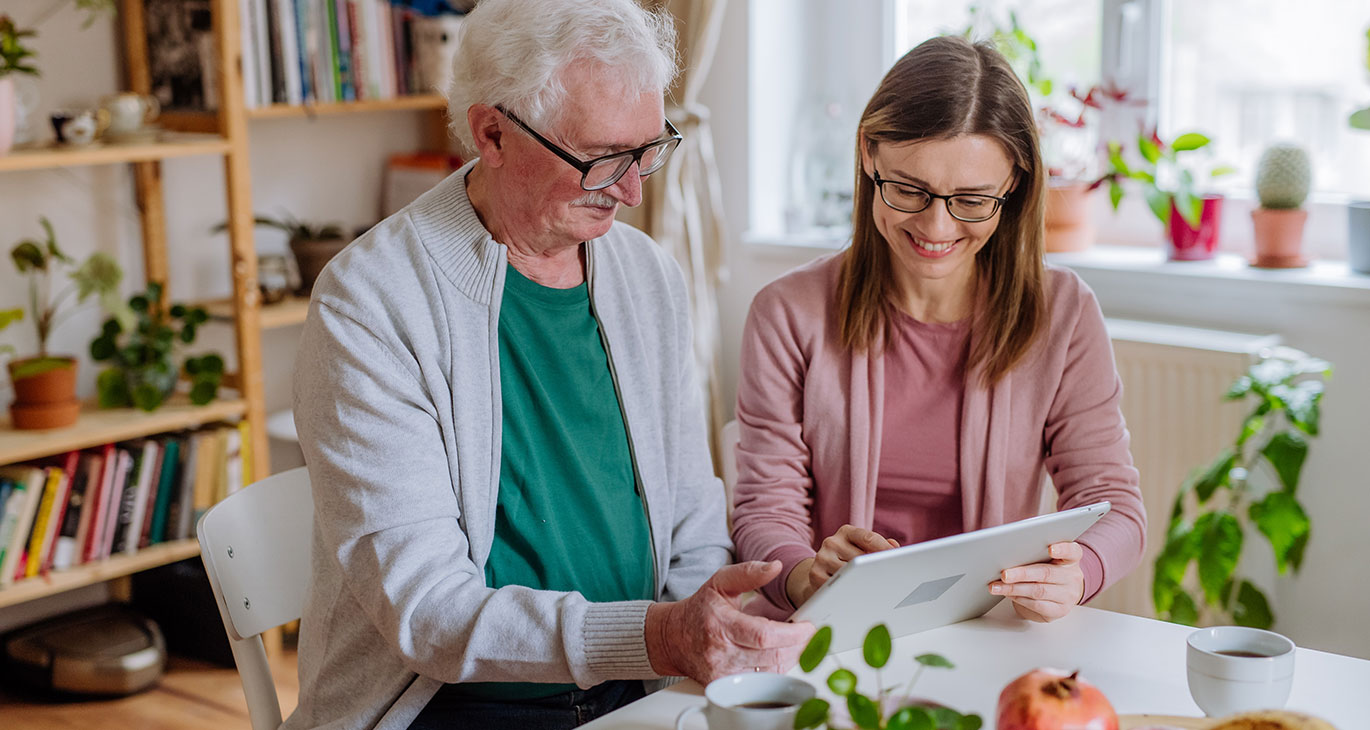
Smart technical aids in clinical settings and care (The Internet of Things in healthcare, Part III)

‘Ambient Assisted Living’ – or AAL – is an umbrella term for products and services designed to help elderly or ill people or those in need of care live independent lives. In the third part of our series of blog articles on the Internet of Things in healthcare, we take a look at smart hardware solutions in clinical settings and solutions designed to help people receiving home care live self-determined daily lives.
Improved efficiency and quality in hospitals with AAL solutions
Smart applications are being used more and more often to improve both efficiency and quality in a clinical setting. Smart patient and medical device identification or digital medication checks improve security. For instance, predictive maintenance means that the functionality of medical devices is monitored online and maintenance is initiated automatically if a problem arises. This cuts costs and makes life easier for the hospital staff. Another example is Indoor Positioning Analytics (IPA). This personal localisation technology can help optimise processes such as appointment scheduling, bed occupancy and patient transportation.
People with health insurance policies largely profit from these clinical innovations without having to bear any additional financial burden. But what about the advancement of smart hardware for home care?
Smart technical aids in a private setting
In the register of technical aids for statutory health insurance, the nursing aids for independent living and mobility product group currently lists more than 100 products as technical aids approved for home use, the majority of which are classed as emergency call systems.
Since 1 January 2023, some smart technical care aids have been subsidised by social and private health insurance. These are nursing aids ‘to improve cognitive and communication skills’ and ‘for coping with and independently dealing with demands and stresses caused by illness or therapy’. They include nursing aids for local and time orientation as well as memory aids. As of January 2023, more complex assistance systems, such as fall detection and automatic fall alarm systems, have not yet been added to the list of nursing aids.
One example of a nursing aid designed to improve cognitive and communication skills is a secure, flexible, wireless call system for intensive care at home, assisted living or housing groups. A wide range of sensors, buttons, communication devices and medical devices can be used to initiate a call. Multiple transmitters can be assigned to individual receivers or combined with multiple receivers. Unlike the personal alarm systems with which we are already familiar, these often alert a communication partner in the home instead of an external standby service. This means that no emergency call is missed and an emergency call is sent out even if the battery is low or a radio unit is disconnected from the mains.
In the group of nursing aids for coping with and independently dealing with stresses caused by illness, for example, an approved tablet management system to support chronically ill people is approved for provision to patients. Combined with software, this device acts as a personal medication manager that gives patients visual and acoustic reminders to take their medication, is ‘programmed’ to make medication available, logs that the medication has been taken and notifies points of contact if the patient fails to take it.
msg.Cura is prepared to process payments for smart technical aids
Within our platform msg.Insurance Suite, our solution msg.Cura optimally supports applications and billing for these smart aids with automated processes. Thanks to open technical aid catalogues, our technical aid administration covers these and all other approved technical aids, which makes it possible to display approved technical aids and their status in the system in a transparent manner.
